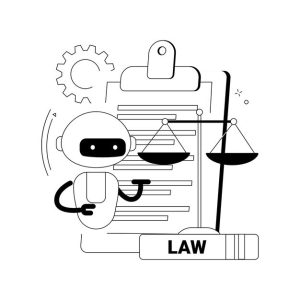When starting a small business, freelancing, or starting a startup, you may have wondered the following question: Do I really need a lawyer to write a contract?
It is a good question. Then again, you are not going to hire an attorney each time you close a deal, because it can cost you a lot of money quite soon. However, when it comes to such a key document as a contract, acting completely on a DIY basis may be nothing less than walking on thin legal ice.
So what will be the actual answer?
Yes, you can write a contract without a lawyer. Quite obviously, there are enough individuals doing it daily. However, there is a considerable differentiation between authoring a contract and one that is legally valid, enforceable, and safeguarding of your interests.
Let’s break down when it’s safe to go the DIY route, when it’s worth bringing in legal backup, and how to do it right if you’re going solo.
What Actually Makes a Contract Legally Valid?
Before we dive into the DIY debate, it’s helpful to understand what makes a contract “real” in the eyes of the law. Spoiler: it has nothing to do with whether it was written by a lawyer or printed on fancy letterhead.
At its core, a legally enforceable contract just needs four things:
- Offer – One party proposes something (like a service or product).
- Acceptance – The other party agrees to those terms.
- Consideration – Something of value is exchanged (money, time, goods, etc.).
- Intent to create legal obligations – Both parties mean for the deal to count.
That’s it. No legalese required. Actually, as long as these four elements existed and the terms were unambiguous, the contracts obeyed in napkin, in email, even in text.
But clarity is key. The most severe problem in DIY contracts is not the legality, but the ambiguity. An ambiguous contract is a garden of misapprehensions, litigation, and expensive problems in the future.
When It’s Safe to Write a Contract Yourself
Here’s the good news: not every deal needs a lawyer. If the value is low, the terms are simple, and the risk is minimal, you can usually draft a solid agreement on your own.
Safe DIY situations might include:
- Flexible jobs or consultancy kind of work that has defined deliverables.
- Selling a product or service under $1,000
- Repeat business with clients you know and trust
- Using a template you’ve read and understand
For example:
Alex is a freelance graphic designer, who has a one-page services contract and it outlines the scope, time frame, payment schedule and rights on the work. It began as a template but he adjusted it to his style of working. Now, he uses it with every client—and has never had a payment issue.
That’s the power of a clear, straightforward contract—even without legal input.
When You Should Get a Lawyer Involved
Now for the flipside. While DIY can be smart in low-risk situations, there are definitely moments when skimping on legal help can cost you far more than the attorney fee.
You’ll want to bring in a pro if the contract involves:
- Big amounts of money or obligations for extended periods of time.
- Intellectual property or licensing rights
- Employment terms (like non-competes or severance)
- Data privacy, software, or anything regulated
- Partnerships or deals that could impact your business trajectory
These aren’t the times to wing it with a free template or AI tool.
Case in point:
A startup once signed a quick, one-page NDA with a manufacturer. They didn’t define who owned the product idea. A few months later, the manufacturer released a similar product. The startup had no recourse—their vague NDA lacked the protection they assumed it provided.
That’s a hard (and expensive) lesson.
The Middle Ground: Use a Template, Then Get It Reviewed
If you don’t want to hire a lawyer for every single contract (and who does?), there’s a smart in-between solution: use a trusted contract template—then have a lawyer review it once.
It will be cheaper upfront, but you will still have that peace of mind knowing that everything is in order and that your terms are correct and bases are covered.
A good lawyer can flag red flags, spot missing clauses, and help you customize your contract so it’s reusable for future deals.
What About AI Tools or Online Templates?
We get it—firing up ChatGPT, downloading a template, or using an online contract builder feels fast and easy. And those tools can be helpful.
But here’s the catch: they don’t know your exact situation.
Templates are only as good as your understanding of them. Problems usually arise when people:
- Fill in the blanks without reading the full contract
- Mix and match clauses from different templates
- Use a contract made for another industry or state
Simply because something is official looking, does not however, mean it is legally good or even that it is something you need.
Rule of thumb. Never fail to read every clause. When something does not give a sense to you, do not assume it is alright. It is your signal to halt and inquire questions or to bring in legal support.
Quick Tips for Writing a Contract That Actually Works
In case you are going DIY, then here is how you can stay safe:.
- Be certain – Deliverables, deadlines, payment terms and roles and responsibilities should be clearly spelled out.
- Avoid vague language – Phrases like “to be determined later” can backfire.
- Add dispute resolution – A clause to state what will be done in the case of disagreements (e.g. mediation or arbitration) can save so much headache.
- Always get signatures – Even for small deals. Use a tool like DocuSign or HelloSign for easy digital signatures.
And yes, even if you’re working with a friend.
So, Can You Write a Contract Without a Lawyer?
Absolutely. You just have to know when it’s safe to go solo—and when it’s smarter to call in the pros.
Here’s a quick decision guide:
| Contract Type | Lawyer Needed? |
| Short-term freelance project | Usually not |
| Selling a product/service under $1,000 | Probably safe to DIY |
| Licensing, IP, or equity agreement | Yes, use a lawyer |
| Hiring employees or contractors | Lawyer recommended |
| Long-term service agreement with stakes | Consider a review |
Bottom line? It does not mean that one should not cross paths with lawyers at all. It is the issue of applying them strategically, at the times when the stakes and the risks are high.
When in doubt, think long-term: what can go wrong? When you ask yourself whether there is any lawsuit, loss of revenue, or legal backlash involved already with the answer, then yes, extra protection is worth it.
Final Thought:
Creating your own contracts is powerful, as far as it is done wisely. Do not be intimidated in case you are a one-person founder or a designer freelancer. Understand your limits, read the fine print and if you are in doubt, pay the money now to save a fortune later.
Because in business, a good contract isn’t just paperwork—it’s peace of mind.










